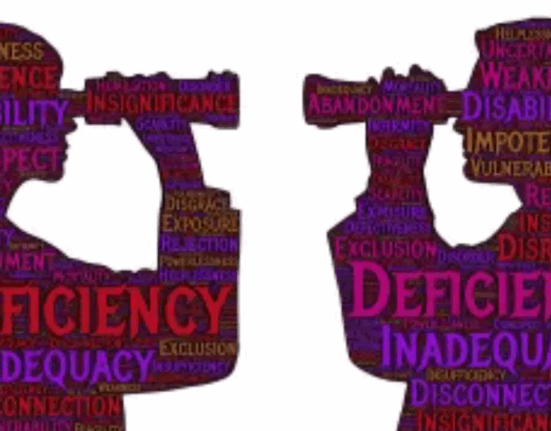Last Updated on February 26, 2025 by Rachel Hall
- The Power of a Pause in Communication: How It Can Improve Your Relationship and Resolve Conflict
- Why a Simple Pause Can Transform Your Relationships
- 1. How Communication Pauses Foster Emotional Regulation
- 2. Pausing Encourages Active Listening and Mutual Understanding
- 3. Resolving Conflict with the Power of a Pause
- 4. Pausing Creates Space for Meaningful Reflection
- 5. Enhancing Communication in Professional and Community Settings
- 6. The Psychological Power of Pausing
- 7. Using Pauses to Foster a Sense of Mutual Understanding
- The Transformative Power of Pausing in Communication
The Power of a Pause in Communication: How It Can Improve Your Relationship and Resolve Conflict
Why a Simple Pause Can Transform Your Relationships
In the fast-paced world of modern communication, the power of a pause is often underestimated. However, this simple act can dramatically improve interpersonal relationships by allowing space for thoughtful responses, reducing emotional tension, and enhancing mutual understanding. Whether navigating a difficult conversation with a partner, a challenging interaction with a family member, or even a professional dialogue, pausing can create a more meaningful and effective connection.
Research and practices recommended by therapists, like those discussed in Psychology Today, show that pausing during communication allows for better emotional regulation. This is essential in resolving conflict and fostering stronger bonds. In this article, we’ll explore 7 powerful ways communication pauses can improve your relationships—whether in your family, your professional community, or with your romantic partner
1. How Communication Pauses Foster Emotional Regulation
The first and perhaps most significant benefit of a pause in conversation is its ability to foster emotional regulation. When engaged in a heated discussion, it’s common for emotions to take over, leading to impulsive words that can worsen a conflict. By simply pausing, you allow your mind to catch up with your emotions, giving you the room to process what’s happening and respond in a more thoughtful way.
Therapists often emphasise the importance of pausing before reacting to avoid saying something in the heat of the moment that could have long-term negative consequences on your relationship. For example, if you feel accused or hurt by your partner’s words, taking a pause allows you to consider their perspective before responding, which can help you foster greater empathy and prevent unnecessary conflict.
Here’s how it helps:
- Prevents impulsive reactions that can escalate a conflict
- Gives the brain time to process and reflect before responding
- Encourages thoughtful and intentional communication
- Fosters greater mutual understanding between you and your partner
Practical Example of Emotional Regulation
Let’s say you’re having an argument with your partner about a common household issue, such as chores. You may feel tempted to immediately respond with frustration or anger. Instead, by taking a few seconds to pause, you can avoid escalating the conflict and instead offer a more balanced reply that takes their feelings into account. This technique can lead to more effective and meaningful dialogue between partners and create a stronger sense of mutual understanding.
2. Pausing Encourages Active Listening and Mutual Understanding
A well-timed pause does more than prevent you from saying something you’ll regret—it also allows you to practice active listening, a key element in any successful relationship. When you take a pause, you’re giving yourself time to fully absorb what the other person is saying, rather than immediately preparing your next response. This fosters better understanding and demonstrates to your partner that you truly value their input.
Active listening is essential in both personal and professional communication. Whether you’re dealing with a disagreement at home or a challenge at work, taking the time to pause and listen can lead to more effective conversations and improved outcomes.
How to Incorporate Pauses for Active Listening
After your partner or colleague finishes speaking, take a brief pause—about three seconds—before replying. This allows you to consider what they’ve said, reflect on its impact, and respond thoughtfully. By consistently using this technique, you’ll not only become a better listener but also build stronger, more secure connections in your relationships.
3. Resolving Conflict with the Power of a Pause
No relationship is free of conflict, but the way we handle those conflicts determines whether our relationships will thrive or crumble. A strategic pause during a disagreement can be the difference between escalating a fight or finding a peaceful resolution. Pausing allows both individuals to step back, cool down, and gain a new perspective before continuing the conversation.
This process of resolving conflict is particularly important in long-term relationships such as marriages or family dynamics, where conflict can often recur over the same issues. By using the pause, you create an opportunity for mutual understanding and problem-solving rather than fueling the argument.
Rather than reacting quickly, take a moment to collect your thoughts. Here’s how pausing can help in resolving conflict:
- Provides time to gain a fresh perspective on the situation
- Reduces emotional intensity and prevents saying things you might regret
- Offers a gap to cool down and think about a solution
- Allows both parties to come back to the conversation with a clear mind
How to Use Pauses to Resolve Conflicts
In the middle of a heated argument, say, “Let’s take a quick break and come back to this when we’re both calmer.” This gives both parties time to reflect and process their feelings, avoiding reactive responses that could worsen the situation. When the conversation resumes, you’ll both be in a better mental space to find a solution that benefits everyone involved.
4. Pausing Creates Space for Meaningful Reflection
Pausing during conversations allows both parties to engage in meaningful reflection. Reflection helps you process what has been said and what needs to be said next. It also encourages introspection, allowing individuals to understand their emotional triggers and how they can navigate them more effectively in future conversations.
Taking the time to pause can provide a much-needed gap to think about the importance of the situation and whether it’s worth escalating. This is especially valuable in complex family dynamics or situations involving professional colleagues where tensions can run high.
Why Reflection is Essential for Strong Relationships
During difficult interactions, we often forget to pause and reflect on how our words and actions affect others. By creating this space for reflection, we foster more intentional communication, which is vital for the health and longevity of any relationship.
5. Enhancing Communication in Professional and Community Settings
While pausing is crucial in personal relationships, it’s just as valuable in professional and community environments. In these settings, a pause can help you avoid misunderstandings, give you time to clarify your thoughts, and present yourself as a more thoughtful and intentional communicator.
Whether you’re participating in a team meeting, giving a presentation, or navigating a difficult discussion with a colleague, pausing before you speak allows you to avoid unnecessary confusion or tension. It also gives your colleagues or community members the impression that you’re carefully considering their input, which can lead to better collaboration and mutual understanding.
- Helps you avoid misunderstandings and conflict
- Encourages clear and concise communication
- Allows time to think about your response, making it more effective
- Improves overall teamwork and collaboration
6. The Psychological Power of Pausing
From a psychological standpoint, pausing taps into the brain’s ability to process emotions and manage stress. According to insights from Psychology Today, when we pause, we engage our prefrontal cortex—the part of the brain responsible for decision-making and rational thought—allowing us to move beyond reactive impulses and make more thoughtful decisions.
This psychological shift can have a profound impact on the quality of your relationships, particularly in moments of high stress or tension. Therapists often recommend the practice of pausing as a method to help couples and families develop healthier communication habits.
7. Using Pauses to Foster a Sense of Mutual Understanding
In any relationship, the goal is to create a sense of mutual understanding and trust. By pausing, you give yourself and the other person the space to express thoughts fully and reflect on what’s being said. This naturally leads to more effective communication and fewer misunderstandings. Pausing also shows that you’re invested in the conversation and value what the other person has to say, whether in a personal, professional, or community setting.
The Transformative Power of Pausing in Communication
Incorporating communication pauses into your daily interactions has the potential to improve every aspect of your relationships. By allowing space for reflection, emotional regulation, and active listening, pausing can help you navigate conflict, deepen connections, and create a stronger sense of mutual respect and understanding.
This practice can impact every area of your life, from your family relationships to your professional engagements. By making the pause a regular part of your communication style, you’ll find that your interactions become more meaningful, your conflicts more manageable, and your relationships more fulfilling. Remember, sometimes the most powerful part of a conversation is the moment you choose to say nothing at all

Rachel Hall, M.A., completed her education in English at the University of Pennsylvania and received her master’s degree in family therapy from Northern Washington University. She has been actively involved in the treatment of anxiety disorders, depression, OCD, and coping with life changes and traumatic events for both families and individual clients for over a decade. Her areas of expertise include narrative therapy, cognitive behavioral therapy, and therapy for traumatic cases. In addition, Rachel conducts workshops focusing on the psychology of positive thinking and coping skills for both parents and teens. She has also authored numerous articles on the topics of mental health, stress, family dynamics and parenting.








Leave feedback about this